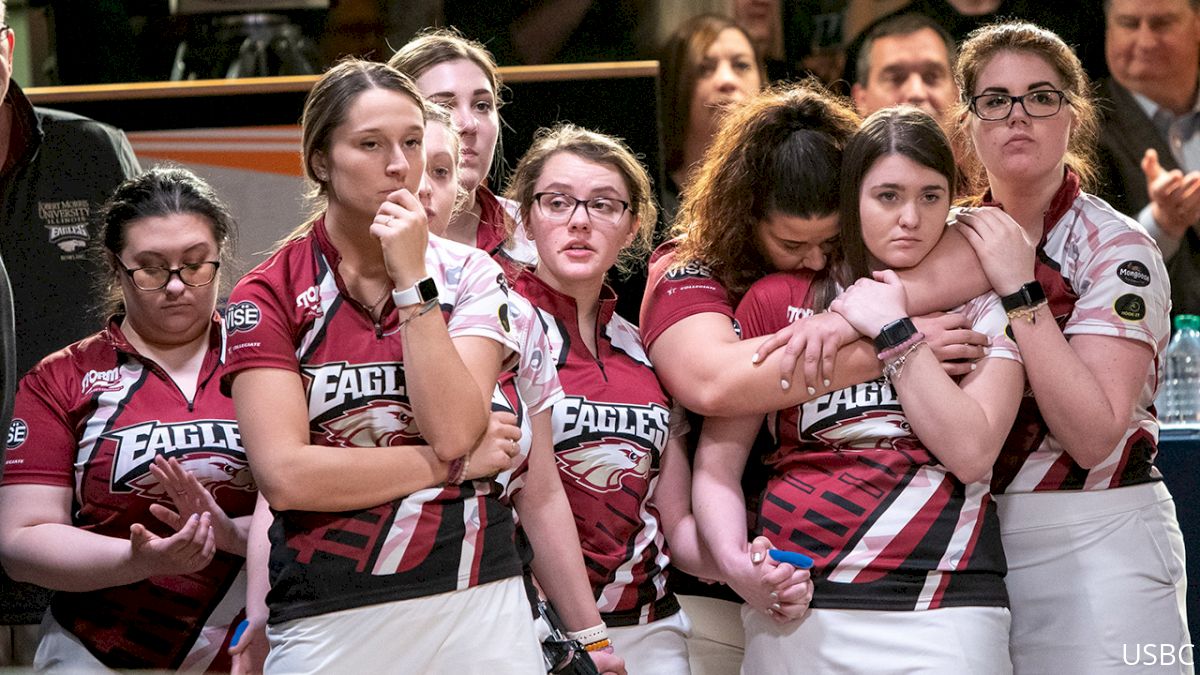USBC Will Not Extend Collegiate Eligibility Amid Pandemic
USBC Will Not Extend Collegiate Eligibility Amid Pandemic
USBC announced late Saturday night it would not extend eligibility for athletes whose season was cut short due to coronavirus concerns.

Unlock this article, live events, and more with a subscription!
Already a subscriber? Log In
Following the precedent set by NCAA and other collegiate associations, the United States Bowling Congress announced late Saturday night it would not extend eligibility for athletes whose season was cut short due to coronavirus concerns.
USBC is following in the footsteps of the NCAA, the National Association of Intercollegiate Athletics (NAIA) and the National Junior College Athletic Association (NJCAA), all of which offered an eligibility waiver to only spring sports.
Bowling is considered a winter sport and no winter sports have been given eligibility waivers for athletes.
Just days before USBC Collegiate Sectionals were scheduled to take place, USBC postponed the events indefinitely on March 12. Just six days later, USBC officially canceled the Intercollegiate Team and Singles Championships, ending the season early.
The feedback on social media in the short time since USBC’s eligibility decision has been announced has been harsh and emotionally charged, as expected.
“As a senior bowler I must say I'm disappointed with this decision and was hoping to actually retire under my terms,” UNLV senior Matt Dobbs posted on Facebook. “It's a shame but I hope there is real consideration to reverse this call. Bowling is a sport that doesn't get the respect and recognition that other sports get, with some not even considering bowling a sport. No wonder why with leadership like this making these kinds of decisions.”
However, the reality is USBC had little choice but to make the decision to not grant waivers. College bowling is made up of club teams as well as teams from NCAA, NAIA and NJCAA institutions.
It would have been an administrative nightmare and created fairness issues had USBC granted some players waivers but not others.
Gary Sparks, the president of the National Collegiate Bowling Coaches Association, addressed the issue on Facebook.
“While I certainly understand the sentiment, with the NCAA and NAIA not providing an extra year for their athletes, USBC Collegiate basically had no choice but to follow those decisions,” Sparks said. “Had USBC Collegiate allowed an extra year, the athletes/teams that were members of the NCAA and NAIA would not have been able to use it, therefore the non-affiliated teams would have gotten an extra year when the other athletes would not.”
Sparks went on to say the decision was all about consistency.
“This is keeping consistency across the board with ALL sanctioning bodies as NCAA, NAIA and NJCAA all 3 decided against giving the extra year to winter sports,” Sparks said. “For USBC Collegiate to try and give an extra year for the non-affiliated teams would have created chaos in eligibility.”
For those wondering why USBC didn’t just postpone the Intercollegiate Singles and Team Championships until later in the year, IBC Youth Development Managing Director Gary Brown addressed the issue in a press release a couple weeks ago.
“We had hoped to find a way to conduct the Intercollegiate Championships within the 2020 academic year,” Brown said. “In speaking with the USBC Collegiate Advisory Committee, it was clear schools would not be able to send athletes to compete after May and, therefore, conducting Sectionals and Nationals became unworkable. Unfortunately, scholastic events simply don’t have the flexibility to move back later in the year.”